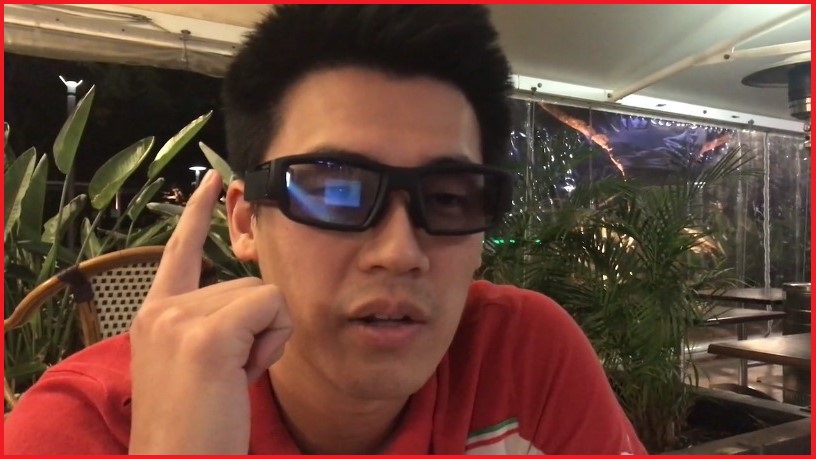A Melbourne start-up has launched a crowdfunding campaign for its “digitally crowd-sourced CCTV platform”, using smart glasses and an “army” of willing users.
Leelou already offers the “ultimate personal safety platform”, a free app which aims to provide personal protection through a peer-to-peer platform.
Users can download the app, invite their friends and then select up to five of them to be “guardians”.
If that user then presses the SOS button, these guardians will be presented with a screen showing their GPS location, battery level, recorded and streamed audio of what’s happening and a group chat with the other guardians.
The start-up, founded by Jerry Farsoun, has now launched Kickstarter campaign for its latest product, Leelou Private Eye.
The scheme involves users wearing smart glasses that crowd-source CCTV in an effort to locate missing people, especially children.
Farsoun is a father of three, and said he was inspired to develop the technology after discovering that 20,000 children are reported missing each year in Australia and his own close call.
“I was at Federation Square bike riding with my two-year-old son, when he became lost in the crowd,” Farsoun said. “Panic set in. I couldn’t think logically. I couldn’t function.”
Billed as “Uber for helping locate missing children”, the aim is to create a “world-first community safety platform”, with the footage from the smart glasses creating a public CCTV network, and users rewarded if an individual is located thanks to them.
“We truly believe that early detection and / or intervention can make a massive difference,” the KickStarter campaign said. “More importantly, when someone does go missing, how can the entire population know or start looking?”
Leelou also plans to launch its own Command Centre which will analyse the footage through the users and use facial recognition technology to identify missing persons.
These missing persons must be properly verified before the glasses start to scan nearby faces.
It’s difficult to access footage from CCTV cameras that are scattered around Australia, Farsoun said.
“CCTV has played a big role in crime prevention, safety and monitoring but it’s been reserved for the commercial enterprise and we do not have access to those cameras when someone goes missing,” he said.
“More importantly, the current status of CCTV is reactive and we first have to know where a missing person has been and backtrack through a timeline, which is resource-heavy and, frankly speaking, arduous at best.”
The company wants to get “good people banding together to make our community safer” through the publicly-sourced footage, but the plan has already sparked concerns of mass surveillance and privacy issues.
Leelou has maintained that it doesn’t store any information or footage.
“The truth is we do not record anything,” it said on the Kickstarter page.
“All information is provided to us from the community and we only scan from missing children’s facial profiles.
“Back in the old days when someone went missing, the community banded together to help find that missing child.
“The platform works exactly like people sharing information, just a lot more efficient.”
The campaign also acknowledges concerns around privacy but claims it is “110 percent ethical”.
“We do not collect any data or sell or promote other companies’ products or services,” it said. “We also do not use any of your data at all for anything other than to help keep you safer.”
This didn’t placate one commenter on the page though, who raised concerns that the concept will lead to “mass surveillance”.
“There will be no surveillance while I’m alive and owning the company,” Farsoun replied.
“Leelou has never been about surveillance. I was offered an obscene amount of money [by someone] to buy Leelou two years ago and I refused because they wanted to use the data to know where everyone was.”
Instead, Farsoun said he has spent $1.5 million bootstrapping the company over the last five years.
The smart glasses will be based on the Android platform, meaning they will also function as mini computers, allowing wearers to use apps like Netflix through the heads-up display.
The company is trying to raise $40,000 through the Kickstarter campaign, with the glasses listed for $2200 each.










